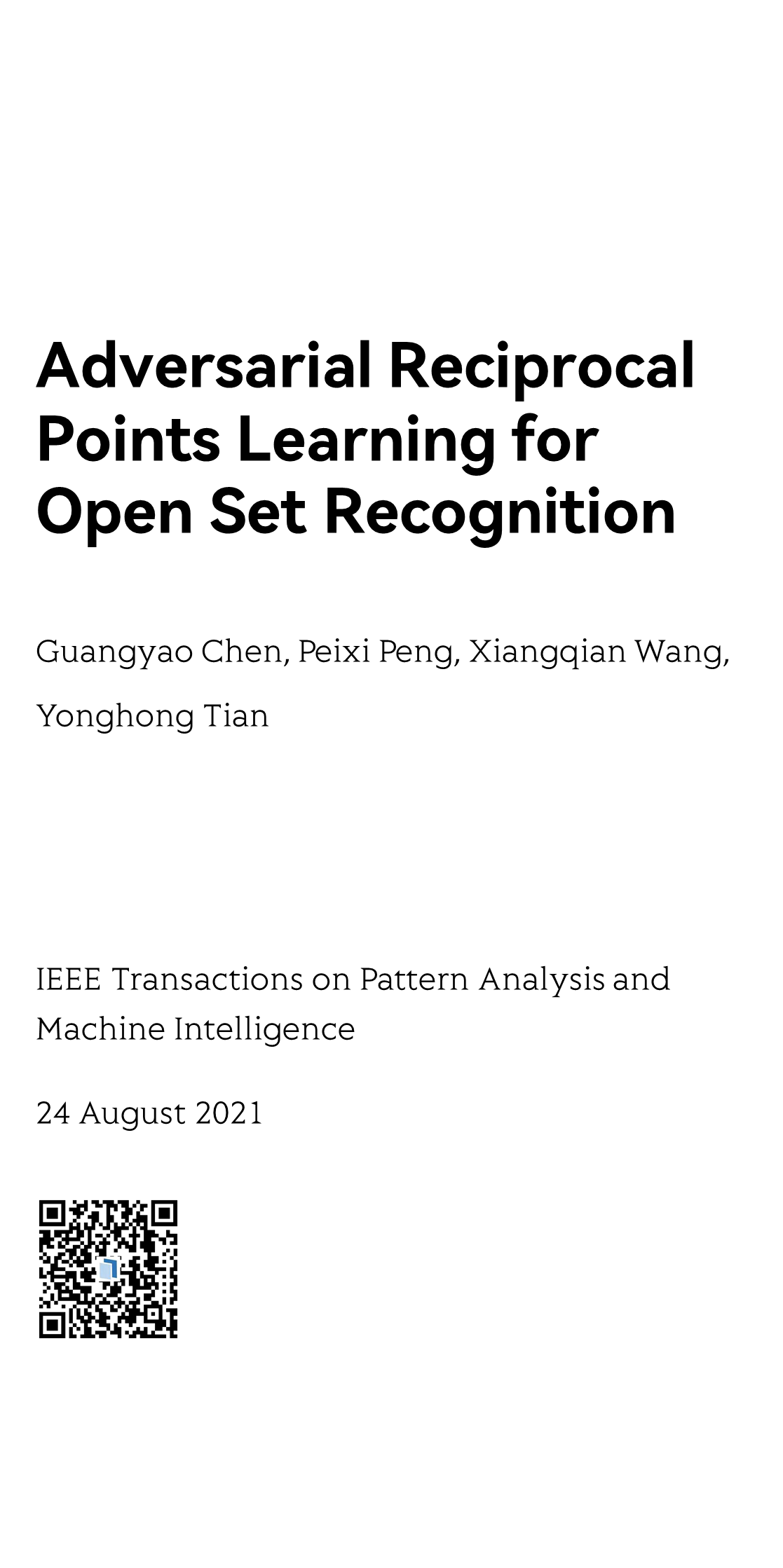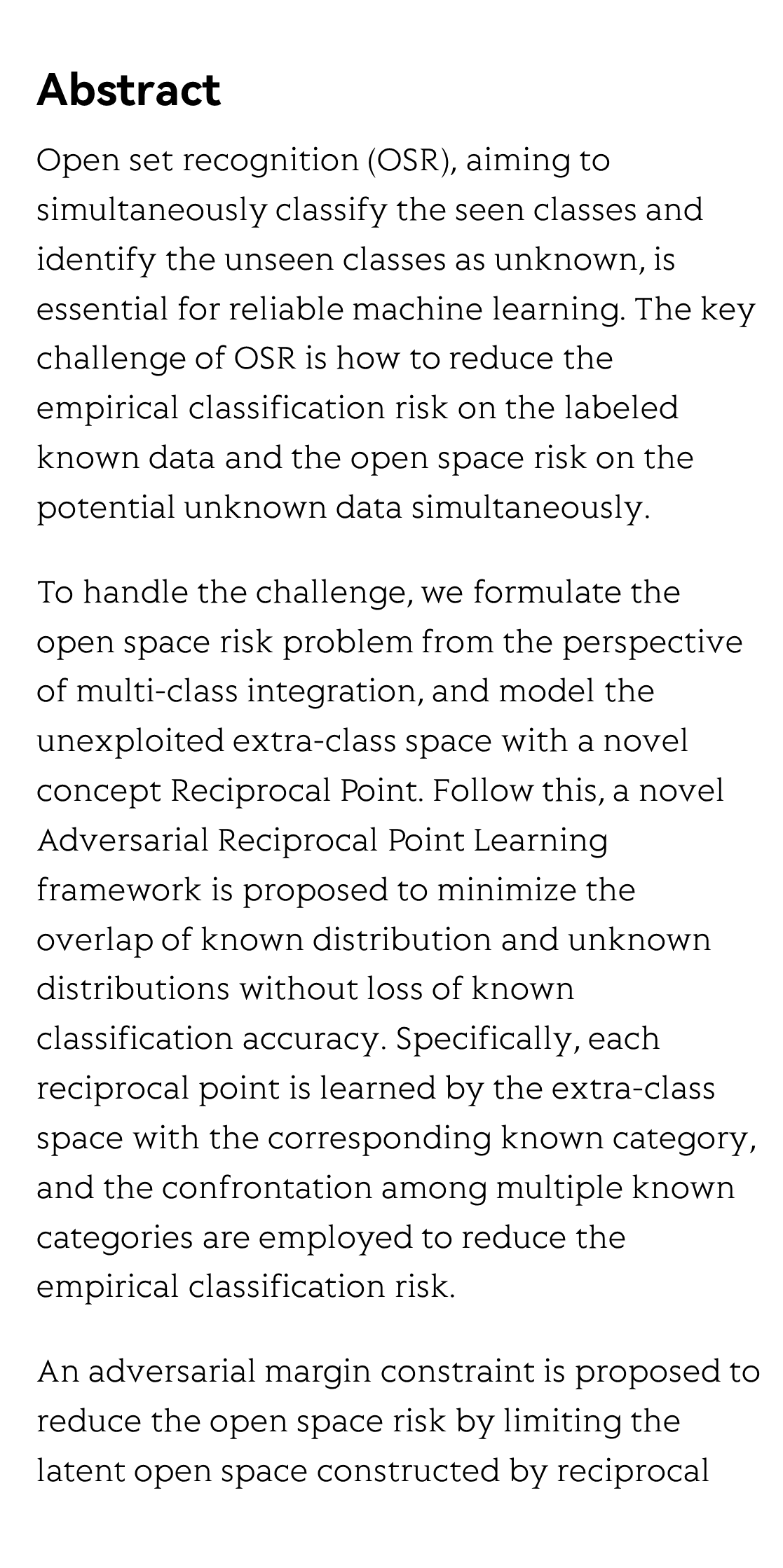(Peer-Reviewed) Adversarial Reciprocal Points Learning for Open Set Recognition
Guangyao Chen 陈光耀 ¹, Peixi Peng 彭佩玺 ¹, Xiangqian Wang ², Yonghong Tian 田永鸿 ¹
¹ School of Electronics Engineering and Computer Science, Peking University, 12465 Beijing, Beijing, China, 100871
中国 北京 北京大学信息科学技术学院
² AI Application Research Center, Huawei Technologies Co Ltd, 115371 Shenzhen, Guangdong, China
中国 广东 深圳 华为技术有限公司 AI应用研究中心
IEEE Transactions on Pattern Analysis and Machine Intelligence
, 2021-08-24
Abstract
Open set recognition (OSR), aiming to simultaneously classify the seen classes and identify the unseen classes as unknown, is essential for reliable machine learning. The key challenge of OSR is how to reduce the empirical classification risk on the labeled known data and the open space risk on the potential unknown data simultaneously.
To handle the challenge, we formulate the open space risk problem from the perspective of multi-class integration, and model the unexploited extra-class space with a novel concept Reciprocal Point. Follow this, a novel Adversarial Reciprocal Point Learning framework is proposed to minimize the overlap of known distribution and unknown distributions without loss of known classification accuracy. Specifically, each reciprocal point is learned by the extra-class space with the corresponding known category, and the confrontation among multiple known categories are employed to reduce the empirical classification risk.
An adversarial margin constraint is proposed to reduce the open space risk by limiting the latent open space constructed by reciprocal points. Moreover, an instantiated adversarial enhancement method is designed to generate diverse and confusing training samples. Extensive experimental results on various benchmark datasets indicate that the proposed method is significantly superior to existing approaches and achieves state-of-the-art performance.
Flicker minimization in power-saving displays enabled by measurement of difference in flexoelectric coefficients and displacement-current in positive dielectric anisotropy liquid crystals
Junho Jung, HaYoung Jung, GyuRi Choi, HanByeol Park, Sun-Mi Park, Ki-Sun Kwon, Heui-Seok Jin, Dong-Jin Lee, Hoon Jeong, JeongKi Park, Byeong Koo Kim, Seung Hee Lee, MinSu Kim
Opto-Electronic Advances
2025-09-25
Dual-frequency angular-multiplexed fringe projection profilometry with deep learning: breaking hardware limits for ultra-high-speed 3D imaging
Wenwu Chen, Yifan Liu, Shijie Feng, Wei Yin, Jiaming Qian, Yixuan Li, Hang Zhang, Maciej Trusiak, Malgorzata Kujawinska, Qian Chen, Chao Zuo
Opto-Electronic Advances
2025-09-25





